“I can’t believe the U.S. still condones (primitive ideals like) racism…it’s the 21st Century. What I mean to say is, in Japan we discarded out-of-date notions like racism decades ago!” ~this is what a 33-year-old Japanese salaryman said in response to the murder of Trayvon Martin
Five years ago while Suzuki-san was saying this to me I couldn’t wait for him to stop talking so I could verbally slay him. Being his English teacher, it was my job to critique the content of his rant. And, oh boy, I couldn’t wait! I mean, what’s he talking about? I thought to myself. No racism in Japan? He must be crazy…then I realized something which caused me to remain silent and probe his claim a little deeper.
According to census statistics, almost 99% of the population in Japan is Japanese. However, these stats measure citizenship, not ethnicity. The Japanese government refuses to collect data on any specific ethnic identities claiming the Ainu, Ryukyuans, Burakumin, Hafu, and the naturalized immigrants are all just Japanese. This includes Chinese, Koreans, Brazilians, and Filipinos (many with Japanese ancestry) who readily tell you they are not Japanese if you ask them.
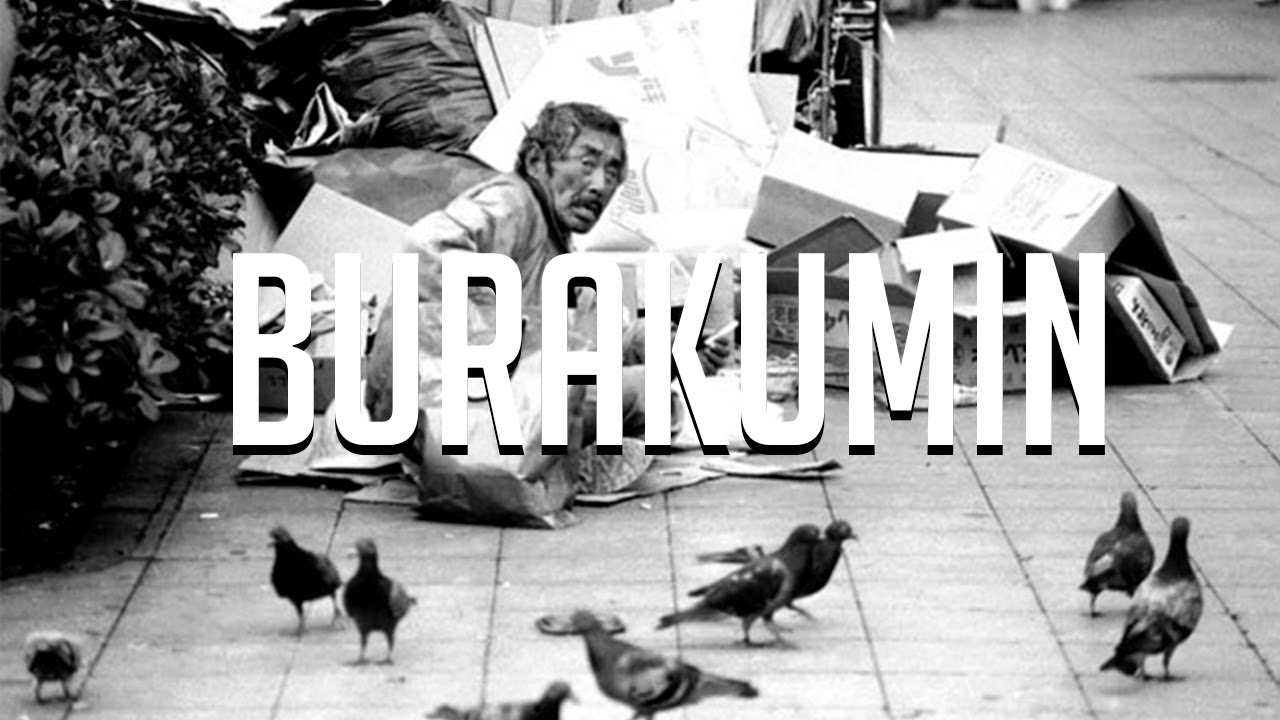
Suzuki-san, seeing I was content to sit and listen, continued making his claim. As he did so I thought about my friend Aya, whose parents are both South Korean. She used to tell me about some of the bigotry she experienced as a child living in Ikuno-ku, Osaka. Ikuno-ku is known as “Korea Town” due to its large Korean-Japanese population. I also recalled my homeboy Shinobu, who told me with pride about his Burakumin ancestry. “I’m not Japanese!” he loudly stated in his Japanese laced with the distinct accent found in the Kansai region. Just as Suzuki-san stopped talking and took a sip of his oolong tea, I sat up to speak.
“You’re absolutely right,” I replied with a smile.
“Honma?” Suzuki-san replied with an incredulous look. It seemed he had taken some time to prepare his argument, knowing all too well how I liked to play the devil’s advocate in our discussions.
As bad as Aya’s and Shinobu’s experiences had been they were not the standard policy of Japanese society. Therefore, by definition, they had to be classified as exceptions. Exceptions to what, you ask? To the rule, of course.
Historically, Japan is famous for having racist doctrines as the rule…or the policy of the country.「攘夷勅命」 pronounced “jōi chokumei” was an edict by Emperor Komei in 1863 to
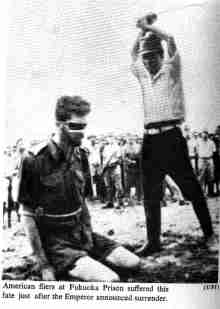
expel the European “barbarians.” Although Indians, Chinese, Koreans and other Asians were known to Japanese, the western European was a new face when Commodore Perry invaded the islands in 1854. Mainly due to their lack of personal hygiene plus other customs seen as peculiar, they were not welcome in the Land of the Rising Sun. Some historians claim the movement pronounced “sonnō jōi“「尊皇攘夷」, which means “Revere the Emperor, Expel the Barbarians” was widespread until well after Japan’s defeat in World War II.
Many people in the United States believe Japanese are bigots by nature, it seems. And perhaps I am partly to blame for reporting over the years about the “No Brazilians allowed” signs I used to see in Hamamatsu back in the 90s; or the black-face caricatures that can still be seen in stores and on TV. Many people are familiar with these characters such as Mr. Popo, from the Dragonball Z series.
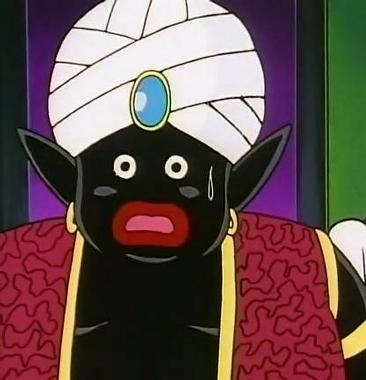
Don’t misunderstand me, I’m not saying this nonsense is okay—or even tolerable—it’s just not the rule….meaning it’s not the standing policy in Japanese society.
To add some light allow me to tell you about my visit to the U.S.A. last week. I had not been there in over a decade so many things were new to me. Right from the start, I was traumatized by the Transportation Security Administration (TSA) welcoming committee. Behind their plastic gloves and sinister looks they seemed to be saying “Welcome to the Savage Lands!”
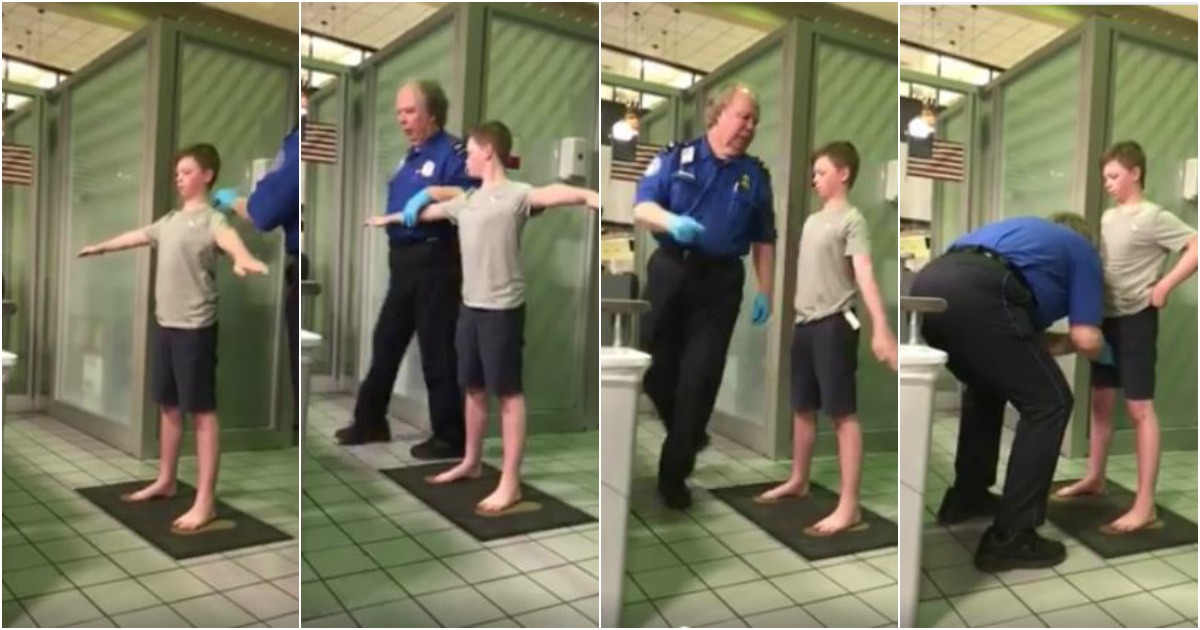
I couldn’t believe U.S. citizens were being exposed to such harsh, brutal treatment. Regular people, it seems, are being treated like common criminals. Well, at least this is no longer only reserved for Blacks and Latinos. I can’t speak for the rest of the country, but the people in Philly seemed polarized to a degree I’ve never seen before. Even in South Jersey, which is somewhat rural, I read about the latest gun slayings in the newspaper. Wherever I was walking or driving, I noticed how people were afraid to look at each other so I didn’t have the opportunity connect with nearly as many folks as I used to whenever I visited the City of Brotherly Love.
Perhaps it was on my return-trip to Japan which best sums up the contrast between living in Japan and the U.S. I arrived at the Philadelphia International Airport just after midnight for my 7:20 am flight. After a week of participating in author seminars, visiting family and friends, and lastly, attending a 6-hour lecture at the Wyndham Hotel, I was exhausted. So I decided to go to the airport and doze there. Upon my arrival, the on-line check-in machines did not work so I sat down and fell asleep.
Hours later, I woke up and noticed that five other passengers had arrived. Soon everyone started lining-up, so I did as well. After about ninety minutes, a very rude Delta Airlines employee appeared and started yelling at us. “If you haven’t checked-in here (pointing at the check-in machines) you will be refused and sent back to the end of the line…NO EXCEPTIONS!” she boomed to the drowsy travelers. “Oh, and the machines are now working,” she added before disappearing behind the counter. Knowing I had not checked-in, I then realized I couldn’t check-in because my smartphone was in my luggage and the battery was dead. All week I had difficulty linking my (Japanese) phone to the (US) wifi. Frustrated, I had given up and put my phone away, thinking I could just check-in at the counter…like I had done in Japan. The people in-line next to me knew my plight and wished me luck.
Soon the mean lady, accompanied by one other, appeared at the back of of the line. With the bearing of two NAZI officials, they started checking people’s boarding passes. “No boarding pass, sir? You have to get out of this line and check-in over there first,” one lady snapped at a man in a cold voice while pointing at the now-busy check-in machines. Just then, the line I was in started moving. Looking ahead of me I scanned the four women’s faces behind the counter to see which one might be sympathetic to my cause. But, to my dismay, all I found was four “I hate my job” bad attitude expressions glaring at the customers in front of them. It reminded me of a time back in 2001 when I was at the NJ Division of Motor Vehicles. Just as one of the Delta hags asked the lady behind me for her boarding pass I had a stroke of luck. Another section of counters, which I had not noticed until that moment, opened. “The next four people step forward.” Although the command came from the same counter we were led to the adjacent area which had just opened. These employees had different uniforms than the nasty ladies to their left. I don’t who they were but once I put my luggage down and saw a smiling woman I knew providence had rescued me. Long story short, she checked me in. However after this harrowing experience, I was then subjected to the “Total Recall” body scanner before getting body-searched.
“I have to pat you down” claimed a very robotic TSA agent, despite nothing strange being detected by their scanner. “Would you like to do it here, or in a private room?”
What a stupid question for a white officer to ask to a black man
Fast-forward to my arrival in Japan. There’s not much to say because I was in and out of the airport so fast I cannot remember much. Upon entering the terminal a very polite Japanese officer herded us into two lines: “Japanese passports this way…foreign passports to the left,” she said pointing in both directions. Since I don’t have a Japanese passport, I went to the left. Before I stopped walking another official, who was checking people’s passports, asked to see mine. Once she determined I was not a tourist, but instead lived in Japan, she switched from English to Japanese. “Do you live in Nagoya?” she chatted with me as she unhooked ropes and told me to follow her. Together, we walked around the foreigners as they watched wondering why I was getting the VIP treatment.
Thirty seconds later, I was collecting my luggage…no fuss, no muss.
The point is, in Japan, although some people might stare at you in public or make a crass remark or two, the bottom line is the policy dictates if you are a law abiding, tax paying resident with a job etc., you are treated with respect. So you see, Suzuki-san’s claim was on-the-money. I can’t begin to express how much I’ve grown (as a person) in Japan just due to being treated like a human being…not like a criminal! While my skin color and my locs get some unwanted attention there isn’t much stereotype embedded. So, am I saying Japan is a haven for melanin-rich folks? To each her own but the short answer is “no.” More on that coming in future editions of AfroAsiatic Perspectives!
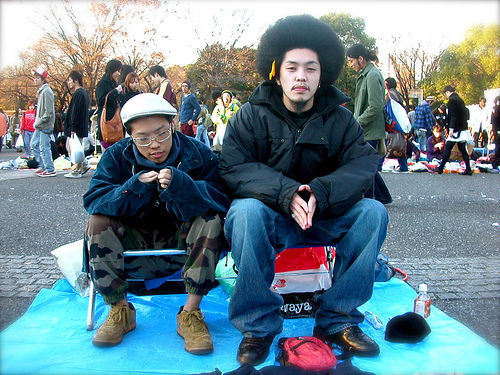
Takuan Amaru is the author of the trilogy, Gaikokujin – The Story.

